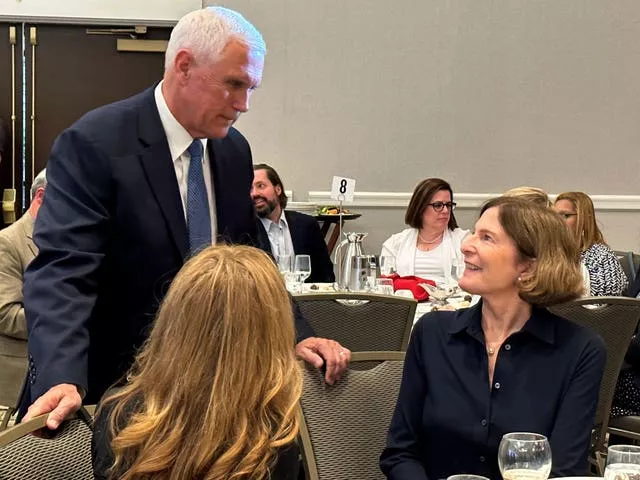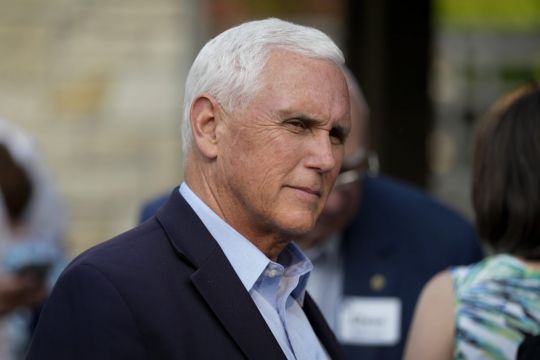Former US vice president Mike Pence is filing paperwork on Monday declaring his campaign for president in 2024, setting up a challenge to his former boss, Donald Trump, just two years after their time in the White House ended with an insurrection at the US Capitol and Mr Pence fleeing for his life.
Mr Pence, the nation’s 48th vice president, will formally launch his bid for the Republican nomination with a video and kick-off event in Des Moines, Iowa, on Wednesday, which is his 64th birthday, according to people familiar with his plans.
He was set to file papers making his candidacy official with the Federal Election Commission.
While Trump is currently leading the early fight for the nomination, with Florida governor Ron DeSantis polling consistently in second, Mr Pence’s supporters see a lane for a reliable conservative who espouses many of the previous administration’s policies but without the constant tumult.

While he frequently lauds the accomplishments of the “Trump-Pence administration,” a Pence nomination in many ways would be a return to positions long associated with the Republican establishment but abandoned as Trump reshaped the party in his image.
Mr Pence has warned against the growing populist tide in the party, and advisers see him as the only traditional, Ronald Reagan-style conservative in the race.
A staunch opponent of abortion rights, Mr Pence supports a national ban on the procedure and has campaigned against transgender-affirming policies in schools.
He has argued that changes to social security and medicare, like raising the age for qualification, should be on the table to keep the programs solvent – which both Mr Trump and Mr DeSantis have opposed – and criticised Mr DeSantis for his escalating feud with Disney.
He also has said the US should offer more support to Ukraine against Russian aggression, while admonishing “Putin apologists” in the party unwilling to stand up to the Russian leader.
Mr Pence, who describes himself as “a Christian, a conservative and a Republican, in that order”, has spent months laying the groundwork for an expected run, holding events in early voting states like Iowa, South Carolina and New Hampshire, visiting churches, delivering policy speeches and courting donors.







